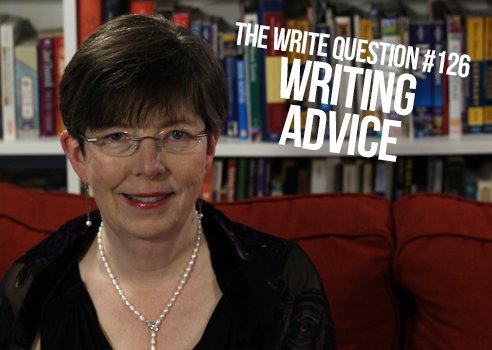Viewing time: 4 mins. 19 secs
The Write Question is a weekly video podcast about writing that I started in 2017 and that ran, more or less weekly, until April 2022. This is a republication of issue #126, which discusses what type of writing advice to follow. The post first ran on Jan. 31/20.
Transcript:
Have you ever wondered about what type of writing advice to follow? That’s the topic I’m addressing today in The Write Question. I’m Daphne Gray-Grant, the Publication Coach.
I have a question from Andy McGuire, an agronomist based in Moses Lake, Washington. Here’s what he asked by email…
“As the owner of many writing books, I wonder if it is best to follow the advice that I received when we had our first child: Pick one parenting book you like and refuse to look at any others?”
Thanks for your terrific — and amusing — question, Andy. As a mother of triplets, I know what you mean about parenting books. There is so much conflicting advice out there, it’s often helpful — and less confusing to our kids — to follow the recommendations of just one expert.
But books about writing are different. Here’s why. With parenting, you’re dealing with other people at a vulnerable stage in their lives — childhood. Consistency is extremely important for them. I’d even say it’s essential. If the kids are getting mixed messages, that can lead to big family problems.
With writing, however, you’re dealing with your own life and, I hope, when you’re less vulnerable than a 7-year-old.
The other thing about writing is that while there are certain principles that apply to most people, we’re all unique. You’re probably going to be better tailoring your own plan — one that works specifically for you.
Think about writing advice as a smorgasboard.
No one is going to make you eat green beans or broccoli if you really hate those two items. Also, you can try small tastes of food you might be too nervous to order by the plateful.
Pickled herring, perhaps? Or maybe sauerkraut? You may try these items and find you dislike them. But if they’re only a tablespoonful on your plate, that won’t be a problem! And no one’s going to make you eat them again!
Or, alternatively, you might discover that pickled herring and sauerkraut hold unexpected appeal for you. Hurrah! You’ve discovered a new food.
Similarly, with writing, small ideas from books may give you a tip — or even a larger framework — that helps you approach your writing differently. Helpfully! Don’t shut yourself off from that chance.
The other risk of following just one writing book — and ignoring the rest — is that very few books cover all aspects of the process. For example, some specialize in editing, others in academic work, still others in motivational issues. If you limit yourself to just one author, you’re unlikely to get all the benefits you need.
Just one final point, however, and that is: make sure you do more than just READ about writing. You also need to write. Try to get at least five to 15 minutes of writing every day.
Finally, let me wrap up with a quote from British entrepreneur Richard Branson: “You don’t learn to walk by following rules. You learn by doing, and by falling over.”
Andy, I wonder if you’ve asked your question about refusing to look at more than one book as a way of focusing your own writing habit? I’m all for focus, but I don’t believe it needs to take huge amounts of time. If you spend 5 to 15 minutes writing every day, you’ll still have plenty of time to read all the books about writing that you want!
*
And, speaking about books on writing…If you’d like to learn how to stop procrastinating and make writing a happier more fulfilling process for yourself please take a look at my latest book, Your Happy First Draft. I don’t sell it in bookstores or via Amazon. The only place to buy it is on my website, link below.


